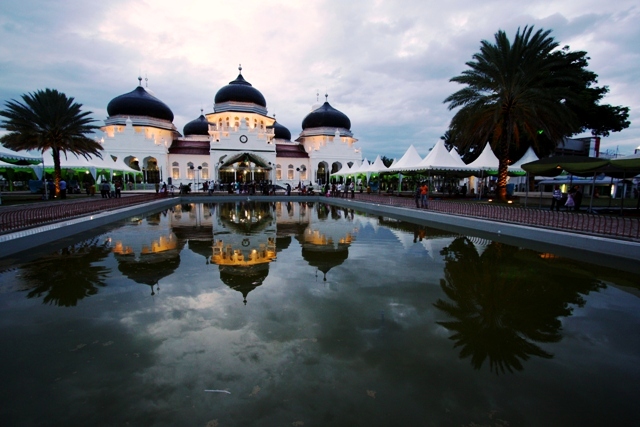4.3.4 Guest Citizenship in Aceh

The Grand Mosque of Aceh, Indonesia. Vidi Agiorno, 2010.
In this article Professor Moch Nur Ichwan, at the Sunan Kalijaga State Islamic University in Yogyakarta, Indonesia, describes the new mode of citizenship that has emerged in Aceh, Indonesia. An interpretation of Sharia has been applied in the Indonesian region since 2001, with major implications for the rights and even identities of non-Muslim citizens who live there.
Read: Faith, Ethnicity, and Illiberal Citizenship: Authority, Identity, and Religious “Others” in Aceh’s Border Areas // Contending Modernities
Guiding questions:
- In 2001, non-Muslim citizens in Aceh went from having the same rights as Muslim citizens to being “guests” upon the implementation of Aceh’s interpretation of Sharia. What implications did this have for non-Muslim citizens’ rights and identities, according to the author?
- The author writes that in 2001 the most important marker of belonging—of being an “insider” or “outsider” in Aceh—became religious. In the words of Imam Shakir in learning material 4.3.3, “The critical question is how can a ruling majority, in whose interest the state was founded, meaningfully accommodate excluded, disenfranchised, or marginalized minorities who are also members of the state?” How could the non-Muslims of Aceh, who became marginalized with the implementation of Aceh’s interpretation of Sharia according to Dr. Ichwan, be offered equal dignity and therefore even equal rights?
Thumbnail: “Aceh Great Mosque.” Photo Credit: Vidi Agiorno, 2010. CC BY-NC-ND 2.0.


